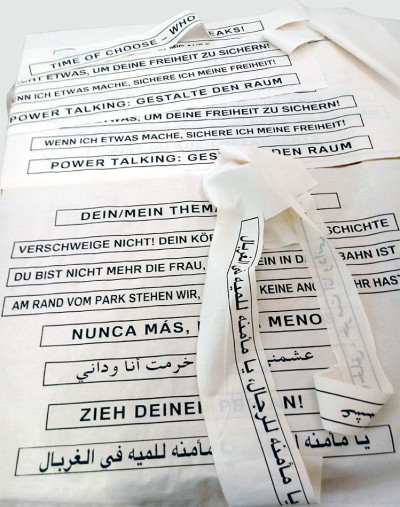- performativespeaking
Über die Haut hinaus #1_Who Speaks!
Performative speaking
In all historical, cultural and social contexts women develop their own strategies of communication to convey certain messages and content among each other and to a wider society as well.
In her presentation Marisa Maza introduces such forms of gendered speech as a dynamic practice that produces new images and spaces of communication and becomes an activist act of women’s surviving in different cultural contexts.
Marisa Maza’s project is motivated by the persistence of structural violence to which women have historically been exposed worldwide and which necessitates their own ways of communication to this day. Historically, for example, in Colombia, enslaved women communicated through braiding their hair maps, small roads and escape routes.
In China, the “women’s script” Nü shu - banned since 1983 - existed since the third century AD and was used, among other things, in arts and crafts: Women were forbidden from lessons in the “men’s script” Nan shu. In Tanzania, women wear inscribed kangas [Swahili for: guinea fowl] - cotton wrap-arounds with meaningful sayings that serve to convey messages of love, religious sayings, or everyday concerns, thus expressing them nonverbally: The wrap-around cloths become communication channels for their wearers in public spaces.
Project funding by BBK Bundesverband, NEUSTART KULTUR
